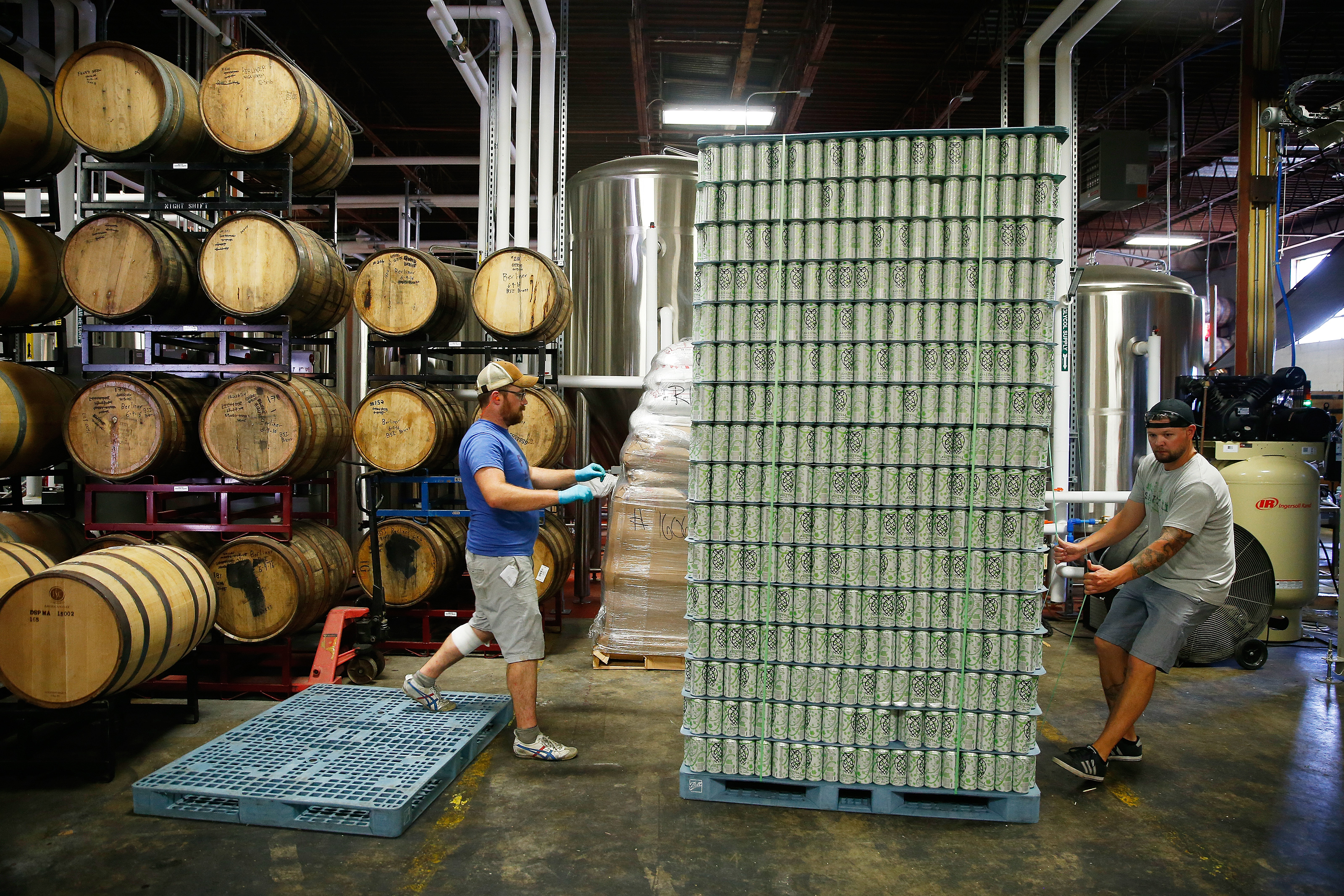State’s new craft beer law suddenly faces legal tests
The state Alcoholic Beverages Control Commission is wrestling with two cases that could eventually determine how the law is applied.
The more serious threat to the law involves a dispute between Jack’s Abby in Framingham and Atlantic Importing Co. in Holliston. Earlier this month, Atlantic filed a petition with the ABCC to force the brewery to stick around. Among other things, Atlantic is challenging the new law’s constitutionality.
“This is an existential threat to the company,” said Sam Hendler, co-founder of Jack’s Abby. “The law was supposed to provide clarity to what always has been a chaotic situation.”
Meanwhile, another prominent local craft brewer, Night Shift, is involved in a similar dispute. But Night Shift is pushing to have the new law enforced as a distributor, in this case for New York-based Loverboy.
Night Shift is seeking financial reimbursement for an investment it says it made to roll out the Loverboy sparkling hard-tea brand in Massachusetts. On Wednesday, Loverboy filed a request with the ABCC for an expedited ruling to throw out Night Shift’s claim, arguing that the new law shouldn’t apply — and if it did, the ABCC shouldn’t have jurisdiction.

Both cases are starting to generate buzz in the industry because of the questions they raise. Will brewers keep their newfound protections? Or will distributors gain the upper hand again? The three-member ABCC probably will rule on these cases this spring. In all likelihood, though, the issue will end up in the state court system.
Brewers and distributors had finally reached a truce on this issue last summer after warring for years. The goal was to even the playing field, by breaking up an old regime that gave distributors tremendous clout. Under the previous state law, brewers typically had found it almost impossible to split with their wholesalers once they hit six months into their contracts.
One key reason for the accord: Boston Beer Co., the maker of Samuel Adams beers, opted to be written out of the law. The new law allows brewers that make fewer than 250,000 barrels a year (every Massachusetts-based brewer except Boston Beer) to leave a distributor without proving a cause, and with only 30 days notice. However, the distributor would need to be compensated for the value of its investments in the brand.
In Jack’s Abby’s case, the brewer said the relationship with Atlantic was falling apart by mid-2020, in part because Atlantic was laying off a significant portion of its sales staff. Jack’s Abby said that meant Atlantic could no longer provide the necessary support. Jack’s Abby decided it made more sense to handle distribution internally going forward, for the short term at least.
Hendler said Jack’s Abby’s situation played a role in motivating him to be a prominent advocate for getting the brewers’ bill across the finish line.
“What I’m going through is … a great example of what brewers are going through all over the state right now,” Hendler said. “I felt that pressure.”
Hendler said Jack’s Abby is willing to compensate Atlantic for its investment, with a figure to be calculated through arbitration.
That’s apparently not enough for Atlantic, which said it expects to remain the exclusive distributor for Jack’s Abby in Massachusetts and Rhode Island. J. Mark Dickison, a lawyer for the distributor, said Atlantic was adversely affected by the COVID-19 pandemic but still served all customers that remained open and always returned phone calls, particularly those from Jack’s Abby, one of Atlantic’s most important suppliers. Dickison said the new law cannot be applied retroactively, to destroy previous binding agreements.
Dickison also claims the law suffers from “constitutional defects” — most notably that it involves an illegal delegation of authority by the Legislature. He argues these issues should be decided in court, where distributors can have a jury weigh the value of distribution rights, and not left to arbitration. He notes that the Legislature wrote language that would invalidate the entire law, if any part is found to be unconstitutional.
The ABCC faces the opposite situation with the Loverboy-Night Shift dispute.
Night Shift Brewing in Everett launched its distribution arm in 2016 to offer potential clients more freedom than the typical wedded-for-life contracts that brewers say unfairly chained them to distributors.
It was this flexibility that Loverboy chief executive Kyle Cooke found appealing as he sought to sell his sparkling hard tea in Massachusetts. By the fall, Cooke said, there was a long waiting list of Massachusetts stores eager to sell Loverboy.
“They were doing a disservice to the brand,” Cooke said of Night Shift. “We had long outgrown them.”
Cooke said his Night Shift contract gave him the flexibility to walk away, unlike the standard contracts in the state at the time, but did not spell out the precise compensation for doing so. He gave his 30-day notice in December, and said his departure took effect before Baker signed the bill. At the time, Cooke said he had no idea the bill was finally about to pass.
Now, Cooke said, no other distributors in Massachusetts want to take on Loverboy because of the fear Night Shift would seek some sort of exorbitant payment.
Night Shift president Rob Burns said his company isn’t asking for much — just some financial reimbursement for the time and effort his company expended to promote Loverboy. He said the contract provided flexibility for a supplier to leave, but not to leave for free.
“The law is pretty clear … that both sides should have a way to exit but there should be compensation involved,” Burns said. “We want nothing more than the success of Loverboy. … We’re just trying to seek some fair compensation for it.”
Jon Chesto can be reached at [email protected]. Follow him on Twitter @jonchesto.




